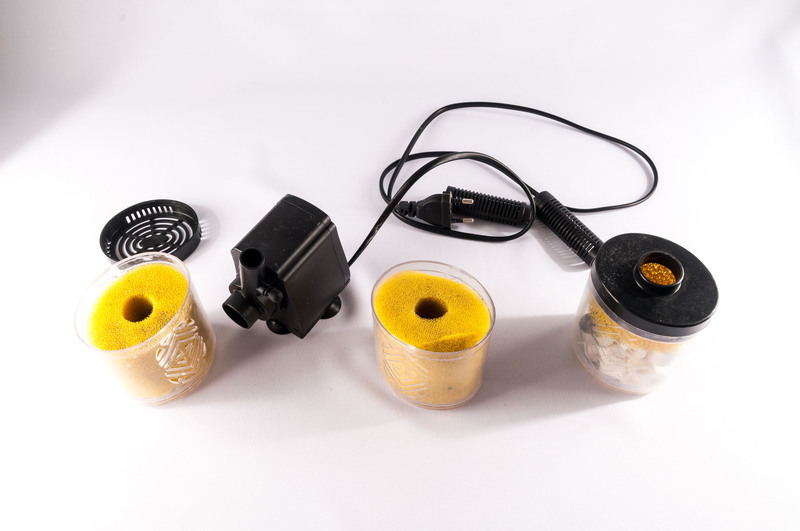Safeguard Your Sofa: Professional Advice for Extended Storage
Posted on 26/05/2025
Safeguard Your Sofa: Professional Advice for Extended Storage
Your sofa is more than just a piece of furniture--it's the heart of your living room, a comfort zone after a long day, and often a financial investment. Whether you're relocating, renovating, or temporarily downsizing, ensuring the protection of your sofa during extended storage is crucial. Read on for comprehensive, professional advice to help you safeguard your sofa and keep it looking pristine for years to come.

Why Proper Sofa Storage Matters
When considering long-term storage for your sofa, it's easy to think that simply moving it into a storage unit is enough. However, prolonged periods in unsuitable environments can lead to irreversible damage. Moisture, heat, pests, and improper handling can all threaten the integrity of your beloved sofa. By investing some time and effort into proper preparation and storage techniques, you save yourself from costly repairs or even needing a replacement down the line.
The Risks of Improper Sofa Storage
- Mold and Mildew: High humidity levels can cause mold growth on fabric and leather.
- Pest Infestation: Rodents and insects may use your sofa as shelter or a food source.
- Structural Damage: Stacking objects or placing furniture incorrectly may weaken the frame or springs.
- Fading and Discoloration: Sun exposure can fade upholstery, while excessive heat can dry out and crack leather.
- Odor Absorption: Prolonged exposure to musty environments can leave your sofa smelling unpleasant.
Step-by-Step Guide: How to Store Your Sofa Long-Term
This detailed guide will walk you through the essentials of sofa storage, from preparation to selecting a storage location, packaging techniques, and ongoing maintenance. By adhering to these recommendations, you will effectively safeguard your sofa during storage and guarantee its condition upon retrieval.
1. Clean and Prepare Your Sofa
Before putting your sofa away for an extended period, thorough cleaning is critical. Dust, dirt, or crumbs left behind can become food for pests or support mold growth.
- Vacuum Upholstery: Use a vacuum cleaner with an upholstery attachment to remove all dust and debris from every nook and cranny.
- Spot-Treat Stains: Address any spots or spills with appropriate stain removers suited for your sofa's material.
- Clean Leather Sofas: Wipe leather surfaces with a slightly damp cloth and apply leather conditioner to prevent drying and cracking.
- Fabric Sofas: If possible, use a fabric-safe cleanser or steam cleaner to rejuvenate the upholstery.
- Allow to Air Dry: Make sure your sofa is completely dry before storage to avoid moisture buildup.
2. Disassemble if Possible
Disassembling your sofa can make storage and transportation much more manageable while minimizing the risk of damage.
- Remove Cushions: Store cushions separately in airtight plastic bags to preserve their shape and prevent dust accumulation.
- Detach Legs and Arms: If your sofa design allows, unscrew removable parts and keep all screws and fittings in a labeled ziplock bag.
- Store Components Together: Place all disassembled parts in one area to avoid losing any crucial pieces when reassembling.
3. Choose the Right Storage Facility
Selecting the proper storage environment is a cornerstone of successful long-term sofa storage. Not all storage units offer the same level of protection:
- Climate-Controlled Units: Always opt for climate-controlled storage. Consistent temperature and humidity levels prevent mold, mildew, and warping.
- Security Features: Look for facilities with robust security measures like surveillance cameras, gated access, and alarms.
- Cleanliness: Tour the premises to ensure it's clean, dry, and pest-free.
- Accessibility: If you anticipate needing access to your sofa, select a unit with convenient hours and easy transport paths.
Remember: A small additional monthly fee for climate control is a wise investment to extend your sofa's life and maintain its value.
4. Wrap and Protect Your Sofa
Proper wrapping safeguards your sofa in extended storage against dust, scratches, and pests:
- Use Breathable Covers: Avoid wrapping your sofa in plastic, which can trap moisture and promote mold. Instead, use cotton covers, old sheets, or purpose-made furniture covers.
- Plastic Sheeting for the Floor: Laying plastic or thick cardboard under your sofa will shield it from ground moisture.
- Wrap Cushions Separately: This prevents color transfer and ensures even compression over time.
- Secure Loose Covers: Use moving blankets or bubble wrap for extra protection, but never wrap too tightly as it may affect the sofa's structure.
5. Elevate Your Sofa Off the Ground
Even in climate-controlled units, floors may sometimes be subject to condensation. Preserve your sofa by keeping it off the ground:
- Place on wooden pallets, blocks, or sturdy plastic risers.
- Ensure all four corners are supported to distribute weight evenly.
- Avoid stacking items on top of your sofa to prevent dents or frame warping.
*Pro tip: If storing in a shared or public storage unit, label your sofa or components clearly to prevent mix-ups during retrieval.*
6. Maintain Proper Airflow and Space
Packed storage units can encourage moisture retention and pest activity. Arrange items so that there's space around each piece of furniture, allowing for good airflow. This is especially vital in non-climate-controlled units.
- Store the sofa in an upright position if possible, to optimize space and minimize surface exposure.
- Leave a gap of 2-3 inches between your sofa and the wall to prevent condensation buildup.
- Don't fill storage units wall-to-wall with items; overcrowding restricts ventilation and can invite mold.
7. Regular Inspections and Maintenance
Periodic checkups are essential to protect your sofa during storage. If feasible, visit the unit every few months:
- Inspect for signs of moisture, pests, or odor.
- Air out the unit on dry days if possible.
- Rearrange covers or padding if they've shifted, and check for sagging or bending.
- Repeat conditioning for leather sofas as needed to maintain flexibility.
Extra Tips from Sofa Storage Professionals
Expert Insights That Help Safeguard Your Sofa in Storage
- Use Desiccants: Place silica gel packs or moisture absorbers near your sofa to further prevent dampness.
- Avoid Scented Products: Heavily scented chemicals can leach into upholstery over time, causing lingering odors that are hard to remove.
- Tag and Inventory: Document your sofa's parts, covers, and cushions for easier reassembly and to track all components during moving.
- Pest Deterrents: Natural pest repellents such as cedar chips or lavender sachets can be placed near furniture for a safer alternative to chemicals.
Common Mistakes to Avoid During Sofa Storage
- Storing a Dirty Sofa: Always clean before storage--residue and dust invite pests and stains.
- Ignoring Environmental Hazards: Never put your sofa in a damp basement, attic, or garage for long-term storage.
- Plastic Wrap Contact: Plastic sheeting in direct contact with upholstery can cause condensation and mold.
- Piling Items on Top: Additional weight can warp frames or compress upholstery permanently.
Storage Solutions for Different Types of Sofas
Fabric Sofas
Fabric upholstery is vulnerable to dust, odors, and moisture. Use breathable covers, and consider using a vacuum-sealed storage bag for removable cushions. Avoid storing in places that are not climate-controlled for long periods.
Leather Sofas
Leather is susceptible to drying, cracking, and fading. Condition thoroughly before storage. Never use vinyl plastic wrap, as it can stick and ruin the finish. Opt for specialized leather covers or clean blankets with natural fibers.
Sectional Sofas
Sectionals have multiple components. Disassemble each section, protect corners and edges with foam or blankets, and store sections vertically (if possible) to maximize space while ensuring structural integrity.

Frequently Asked Questions: Safeguarding Your Sofa During Storage
How Long Can a Sofa Stay Safely in Storage?
With proper preparation and a climate-controlled environment, most sofas can remain in storage for several years without significant deterioration. Periodic inspections and maintenance further extend their longevity.
Should I Store My Sofa Vertically or Horizontally?
If space permits, store sectionals and smaller sofas vertically to save room, but ensure it rests on its side and not on delicate parts like armrests. Full-sized couches typically fare better stored flat, provided the frame is supported evenly.
Is Climate Control Essential for Sofa Storage?
Yes! Climate control eliminates drastic temperature swings and keeps humidity at safe levels, protecting both fabric and wood from mildew, mold, and warping. It is especially crucial for leather and antique pieces.
How Can I Prevent Musty Odors?
Proper cleaning, the use of breathable covers, moisture absorbers, and periodic airing out help prevent musty smells. Storing in a dry, well-ventilated environment is also key.
Conclusion: Protecting Your Sofa's Future
Storing your sofa for an extended period doesn't need to be stressful. With the right approach, you can confidently safeguard your sofa in storage and preserve its comfort, beauty, and function for years to come. From thorough cleaning, strategic disassembly, and choosing an optimal storage location to employing expert wrapping and regular checks, each step is crucial. Avoid common pitfalls and stay proactive--your sofa (and your future self) will thank you!
- Prepare thoroughly before storage begins.
- Prioritize climate control and airflow in your chosen facility.
- Use proper protective covers and elevate your sofa.
- Inspect periodically to maintain your sofa in peak condition.
When you eventually bring your sofa back home, you'll be amazed at how well it has fared--proof that a little care now pays dividends later. Safeguard your sofa and ensure it remains the centerpiece of your living space for many years of relaxation and enjoyment.
Latest Posts
Master the Art of Moving House Stress-Free
Mastering the Art of House Cleaning Before Moving Out
Master the Art of Efficient Packing for a Home Move



